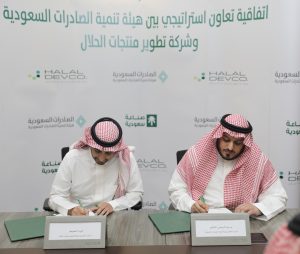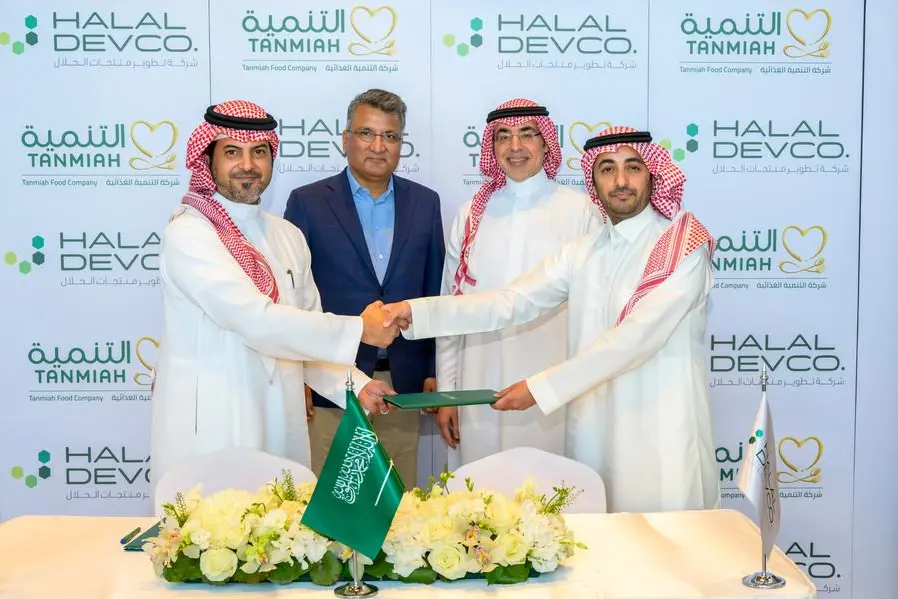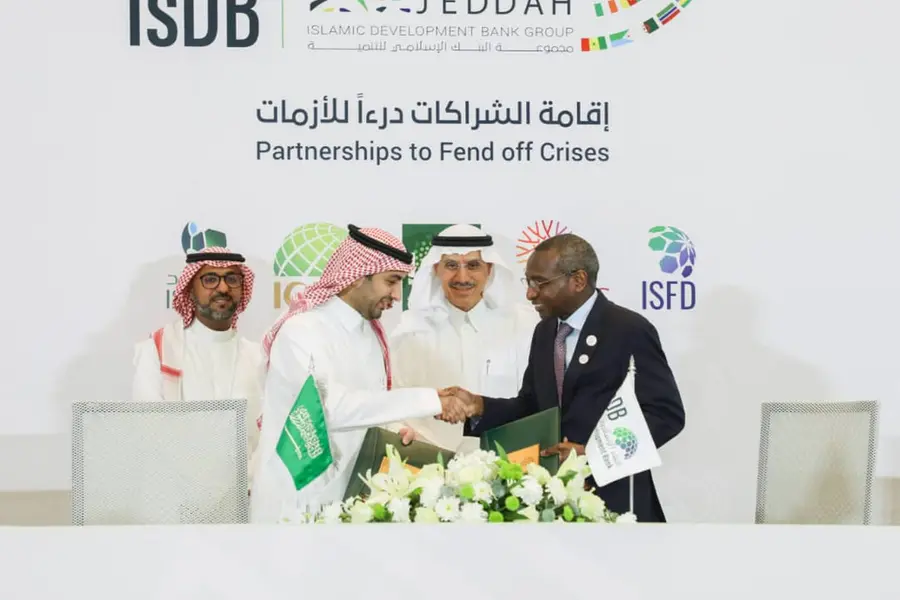 The Saudi Export Development Authority (SEDA) and Halal Products Development Co. (HPDC), a wholly owned subsidiary of the Public Investment Fund (PIF), signed a strategic cooperation agreement to launch a program to facilitate the entry of Saudi companies into the global halal market.
The Saudi Export Development Authority (SEDA) and Halal Products Development Co. (HPDC), a wholly owned subsidiary of the Public Investment Fund (PIF), signed a strategic cooperation agreement to launch a program to facilitate the entry of Saudi companies into the global halal market.
The agreement was signed by Eng. Abdulrahman Althukair, CEO of SEDA, and Mr. Fahad Al-Nuhait, CEO of HPDC.
This agreement aims to strengthen joint action and coordination between the two parties in the halal products sector at the strategic and operational levels, by supporting Saudi companies, goods, and services, as well as encouraging consumers to buy Saudi-made commodities. It also aims to harness all capabilities to develop and boost Saudi exports to global halal products markets.
Commenting on the deal, Althukair stressed that the strategic cooperation with HPDC is part of the Saudi Export Development Authority’s keenness to bolster effective strategic partnerships with the public and private sectors, in order to serve its goals of enhancing the position of national commodities and services, and facilitating their access to global markets. This will contribute to delivering Vision 2030 in increasing the Kingdom’s exports and raising the contribution of Saudi non-oil exports to 50% of the non-oil GDP.
Al-Nuhait said the agreement seeks to strengthen joint efforts and coordination between both parties in the halal products market at the strategic and operational levels, by supporting Saudi companies, goods, and services, as well as encouraging consumers to buy home-made goods. It also harnesses all capabilities to develop and boost Saudi exports to the global halal products markets.
HPDC is enhancing the halal system in the Kingdom and abroad. To this end, it formed strategic partnerships with legislative and empowering bodies in the halal sector, such as SEDA, the Saudi Food and Drug Authority (SFDA), the Saudi Standards, Metrology and Quality Organization (SASO), the Islamic Development Bank (IsDB), as well as partnerships with the private sector inside and outside the Kingdom.
Studies show that more than 80% of consumers in the Organization of Islamic Cooperation (OIC) countries are willing to buy halal products, especially if they are manufactured in Saudi Arabia, which makes the Saudi halal market promising. Furthermore, the global halal market is one of the fastest growing industries, with a growth rate of 7.5% annually, especially for food products. Global spending on halal products and services is expected to reach $2.8 trillion by early 2025, according to the statement.
The largest exporters in this field are China, Brazil, the US, India, Australia and France. Meanwhile, Saudi Arabia is the world’s largest importer of halal products, with a value of more than $30 billion, in addition to other markets such as the UAE, Indonesia, Nigeria, Egypt, and Turkey. The food sector is a key industry that represents about 70% of the total halal market size, followed by the pharmaceuticals and cosmetics sector.

The agreement includes a plan to launch a program that facilitates the entry of local companies into the global halal market. This aims to build a local industrial system for halal products, by forming a committee to set the standards required for selecting a target number of companies to be qualified annually for entering the global halal products markets through many areas such as preparation of a strategy tailored to expanding the halal market and raising awareness of the opportunities available in the global halal market, the statement added.
Strategic consultation services and support will be also provided under the agreement to build a national halal industry, that will turn into an integrated halal system aligned with local and international halal regulations.



